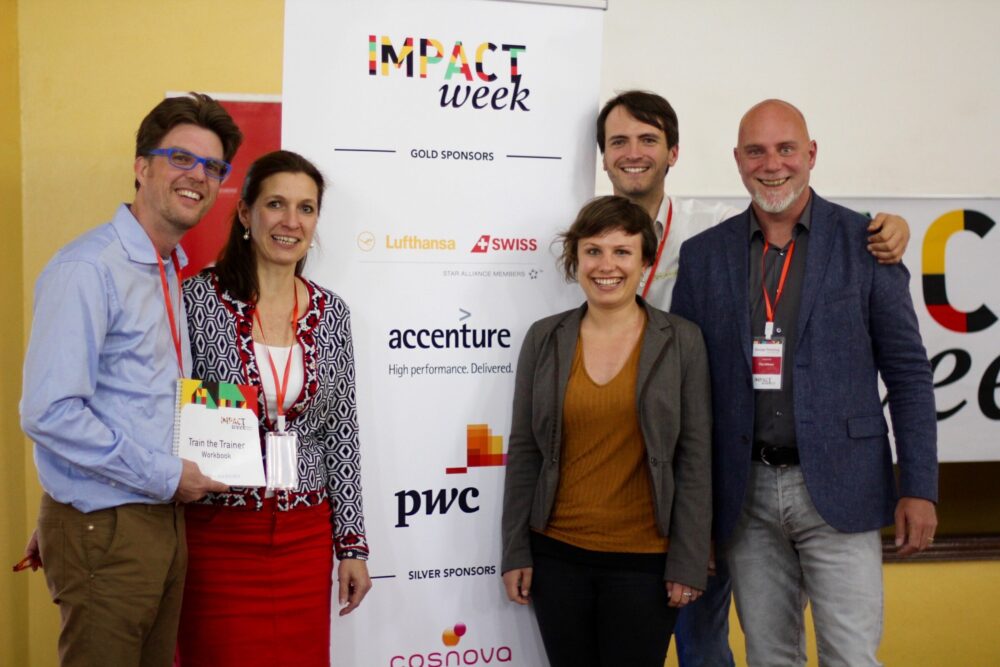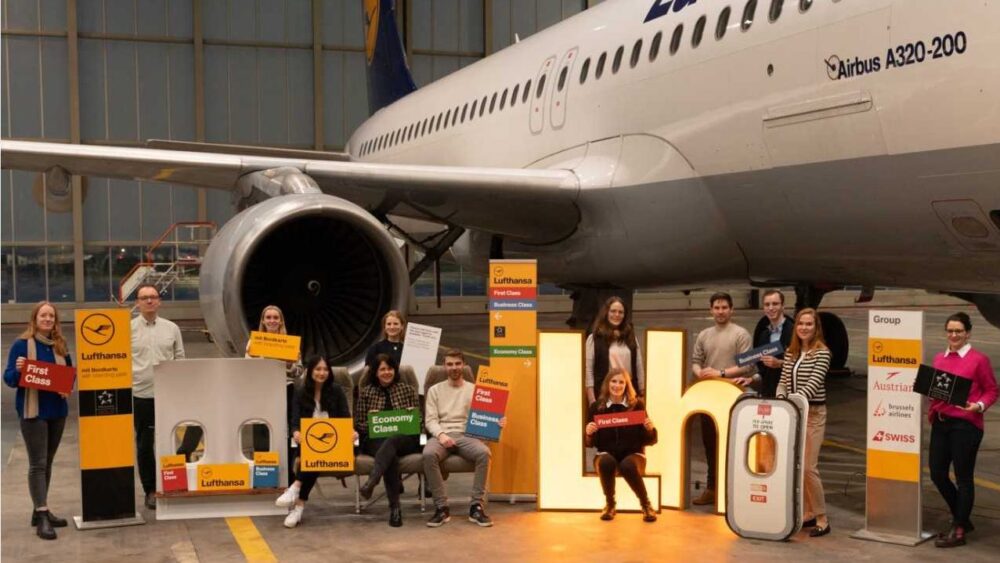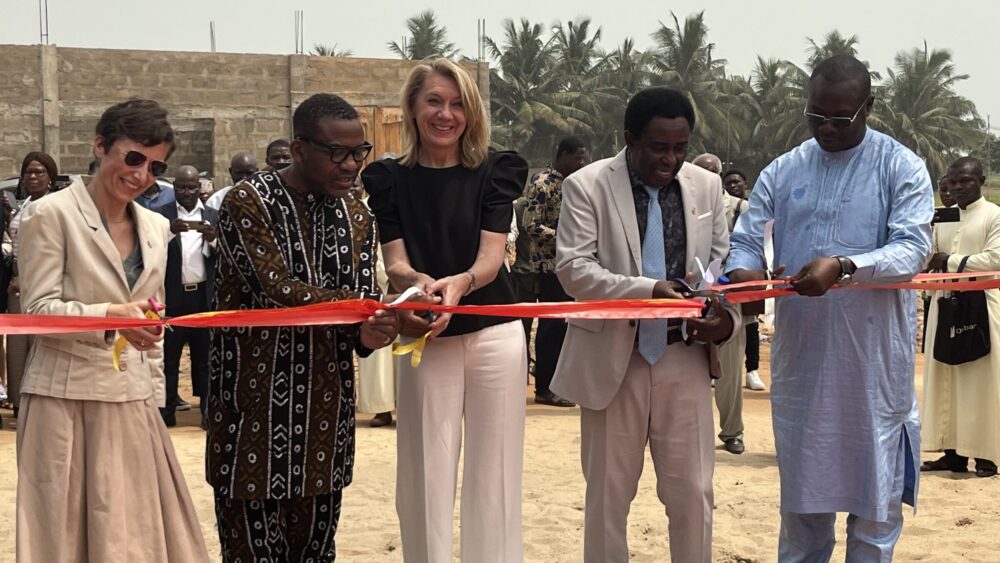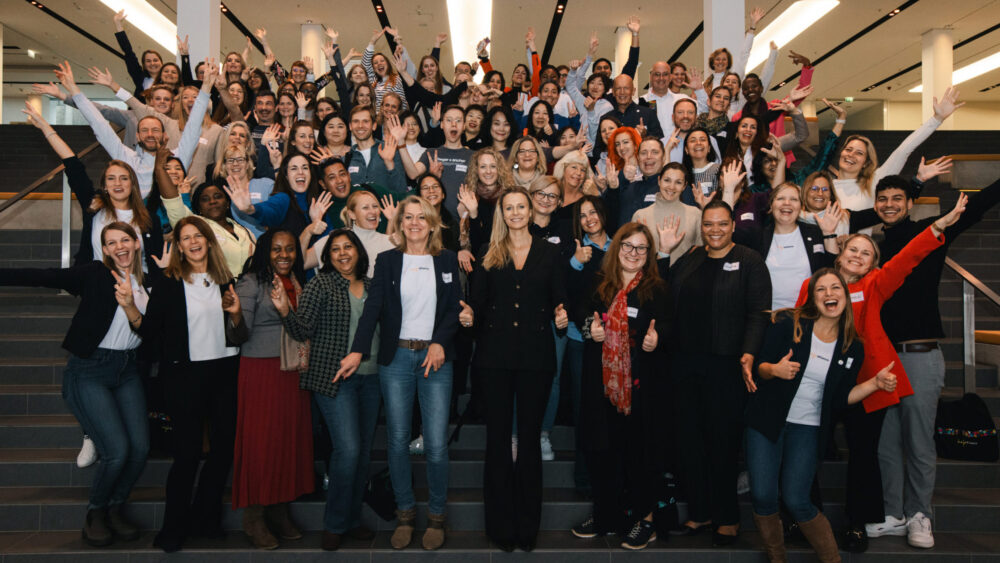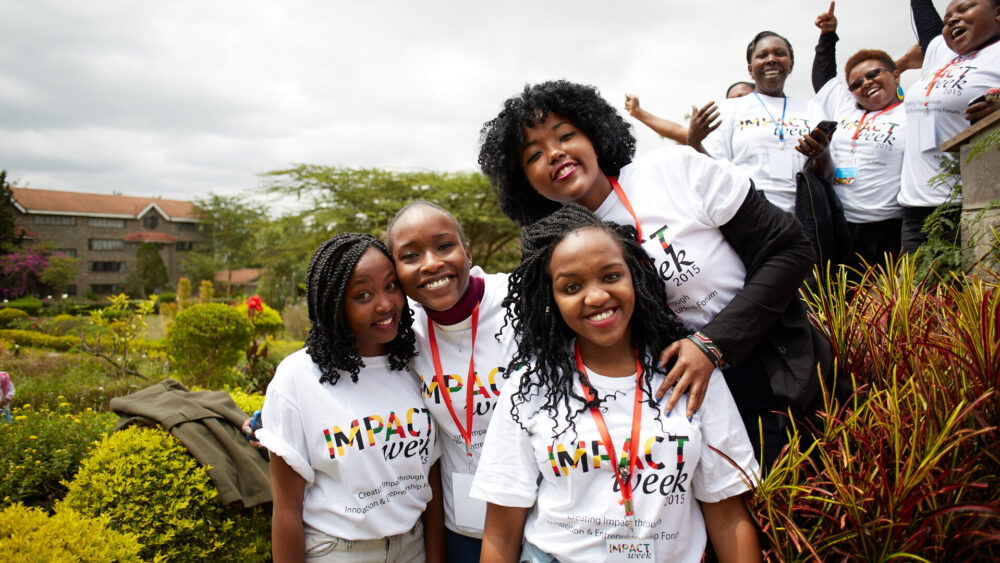
Three Impact Weeks in Nigeria, Rwanda and Colombia to begin in fall
Become a Design Thinking Coach and solve problems innovatively
After two successful workshops in Kenya over the past few years, the so-called Impact Weeks will take place for the first time in Nigeria, Rwanda and Colombia in September and October. Lufthansa employees can take part in the Impact Weeks, become a Design Thinking Coach and learn to apply the method directly.
help alliance would like to enable young people all over the world to live independent lives. Ideally, this ability is provided by the dedication and commitment of the colleagues at Lufthansa Group. The Impact Weeks are a great platform for this, from which both sides can benefit in the long-term. In addition, it helps strengthen entrepreneurship, which itself is one of the three major pillars in the help alliance portfolio,” says Joachim Steinbach, Managing Director of the Lufthansa Group aid organization. For this reason, help alliance also funds the Impact Week in Nigeria and contributes to the costs of the workshops in Rwanda and Colombia.
But what is behind Impact Weeks and the term Design Thinking (DT)? It’s simple: DT is an innovative, agile product development approach, in which a problem is identified, which can be solved at the end of the process using a business model. The DT method is thereby geared consistently towards the needs of the client. The dual concept of the Impact Weeks consists of a learning phase, in which participants are trained to become DT coaches, and the practical application phase with students from local universities.
“The aim of the program is to train coaches, who then bring what they have learned into the Lufthansa Group following the Impact Weeks,” says Dr. Jens Unger, Project Leader Change Process Implementation at Lufthansa Group Campus, who has been involved in initiating past Impact Weeks. Unger sees a lot of potential in such workshops: “They help us to drive innovation processes and to thus work in a more agile and client-focused way. Moreover, Impact Weeks also provide support in the sense of social responsibility for local people and promote intercultural exchange as the method is applied directly with students at local universities following training to become DT coaches. They are then able to later carry out new Impact Weeks themselves. In addition, young people are given the opportunity to learn necessary skills to build their own successful businesses.”
The Impact Week coaches are experts: co-organizer Alexander Grots, for example, helped to develop the approach himself 16 years ago at IDEO. The Impact Weeks program is hosted, among others, by SAP “Design Thinking” trainers in cooperation with the project group Impact Week and local universities.
The dates of the Impact Weeks:
- Colombia, Bogota, September 20-29, 2017
- Rwanda, Kigali, 03-12 October 2017
- Nigeria, Lagos: 20 – 28 October 2017
Recap of the Impact Week 2016 in Kenya
As one of four Lufthansa Group participants in Impact Week 2016 in Kenya, Julia Wenzel, who works at Lufthansa Aviation Training in Munich, addressed the key issue of healthcare with the aid of her project team of Kenyan students. More specifically, they dealt with the challenge faced by mothers of large families, namely that there is no reliable information available about doctors and their methods of treatment. “This is very important because in Kenya, the women make the decisions for the entire family with regard to medical treatment. But of course you can’t find African village doctors on Google”, says Wenzel, “and even if you do know where to find them, you don’t always know how they practice.”
After receiving two days of on-site training by professional SAP coaches to become a Design Thinking Coach according to the “Train the Trainer” principle, she was able to directly apply her newly learned methods. There was not a lot of time to find a solution for this issue because, in Design Thinking, teamwork is one of the most important things and during Impact Week, it comes down to speed: Within just four days a business idea is developed and tested. The team involved potential customers in the development process early on and interviewed people on the streets of Nairobi. The business model was formed at breakneck speed.
“Our solution proposal was the Health Book”, says Wenzel. A directory in the style of Facebook, which attracts to doctors to register in so they are easier to find. “Doctors can also enter their preferred treatment methods in it. Patients can then subsequently evaluate the treatment and experience they had. This helps mothers a lot when making decisions.”
At the end, the new product idea only landed sixth place out of a total of 17 product ideas from four key areas. “But after the initial disappointment, happiness prevailed in my team that they had been there and had learned so much”, says Wenzel. The friendships that were made during this intensive period are still going strong today.
First place became the Happy Farm, a farm in a box. Customers receive a parcel which contains seeds and crop production notes with which they can produce a highly productive garden on just a few square meters.
The Lufthansa employee was and is enthusiastic about the concept. In October she will be a facilitator at the Impact Week in Rwanda. “Learning together with the students on the same level was inspiring. And I can say that they are the real masters of coming up with creative business ideas.”
Also there with Wenzel during the week in Kenya were Benjamin Rückriegel from LSG, Andrea Lemke, FRA HE/EP, and Tilo Hillmer, FRA AY.
